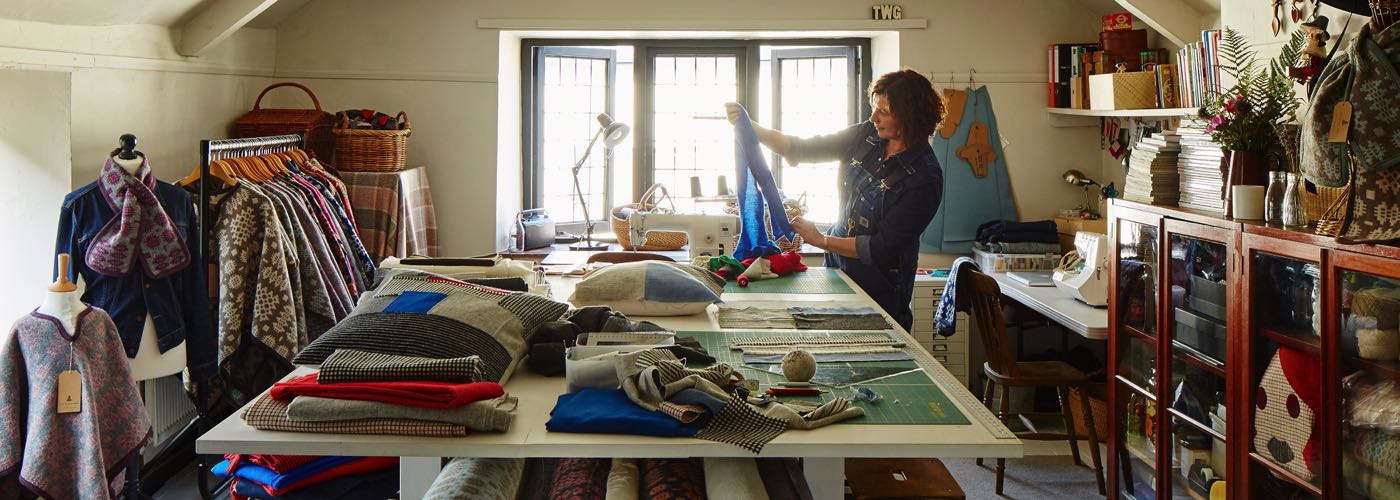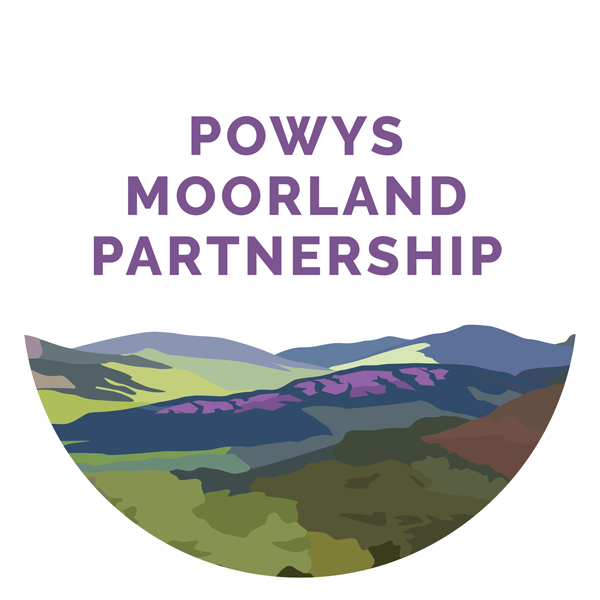I just want to get my hands on Welsh Wool which I’m surrounded by…but I’m not allowed to!!!
It’s taken the lockdown to listen a bit more to what is really being said. Facilitating the PMP for its 3 year term has involved lots of conversations around sustainability. But as in most cases we rarely hear what people are saying. I’m always on to the next thing to see if I can make sense of the key words: building resilience into landscapes, reconnecting communities, creating wildlife corridors etc. Yet some of the easiest wins are staring us in the face as usual and are probably the most powerful in getting more people connected and linked with the surrounding landscape.
The Welsh Girl – based in Hay – and I have chatted to a lot over the years and it has only been now – during lockdown – that I have actually heard what she is asking for. ‘Why can’t I have Welsh Wool to produce my wool products when there is so much here on my doorstep, she pleads,”?
Julie Leonard is The Welsh Girl https://thewelshgirl.com/ and she has always fascinated me with her unique creativity which is glaringly apparent when you enter her shop at St John’s Place. Her work is all about regenerating the textiles of Wales. Ponchos, bags, scarves and homewares all handmade from traditional Welsh tapestry. The cloth is woven especially for her on traditional looms where only small runs are produced and no two colour combinations ever repeated.
She works hard, works with Welsh people and spreads the word worldwide of what her Welsh story is all about. Beautiful Wales, renowned for its millions of sheep, plus all the rain of course and the masses of naturally grown grass surrounded by the stunning mountains; used to illustrate so many postcards, paintings/books: yet she can’t get her hands on the wool. In fact she has to get it from a company in Yorkshire where the British Wool Board is based.
Welsh wool??? It’s one of the first questions asked when they come into the shop and the look of puzzled faces puts me on the back foot immediately, says Julie, who’s self-employed, leaving a well paid job in Production in London after 25 years to return home, admits it’s deeply frustrating.
Especially so, as it’s such a simple link to connect the landscape with the people, it opens up the whole story of our natural resources and how we use them and how interlinked we all are. “We are more connected than we think,” she says, adding that The Welsh Girl is about generating new skills, stimulating the local rural economy, connecting people with the farmers and educating future generations. It’s what sustainability is all about, says Julie.
In fact I find myself constantly apologising that with all the sheep they have passed on their way into Hay, none of them are connected to the beautiful array of products that Julie has made. Many people visit Hay, both from home and overseas, and people cannot understand why Welsh wool is not used.
For Julie, it’s not about money, or profit, or drumming up value so that it can be sold, it’s a passion and of course a job but a job with purpose to create change and looking back in order to go forward. See what we have lost, and whether there’s still time to bring the old lessons back to help us reconnect with our environment so that there is a chance for future generations.
“There’s nothing better than wool,” says Julie. It has so many wonderful attributes. It’s 100% natural; it’s a renewable resource; forms part of a natural carbon cycle; it can be reused and recycled; it’s naturally odour resistant and easily refreshed by airing; it’s fire resistant and fire retardant; it improves indoor air quality; it keeps us warm in winter and cool in summer… the list is endless. And of course it’s in plenty supply here in Wales.
Maybe the days of looking to the other side of the world for our needs need to change. Let’s hope something good will come out of the current pandemic and we will wake up as a nation and realise there’s a lot we can utilise right on the doorstep.
Catherine Hughes, facilitator of the Powys Moorland Partnership (PMP) project.

